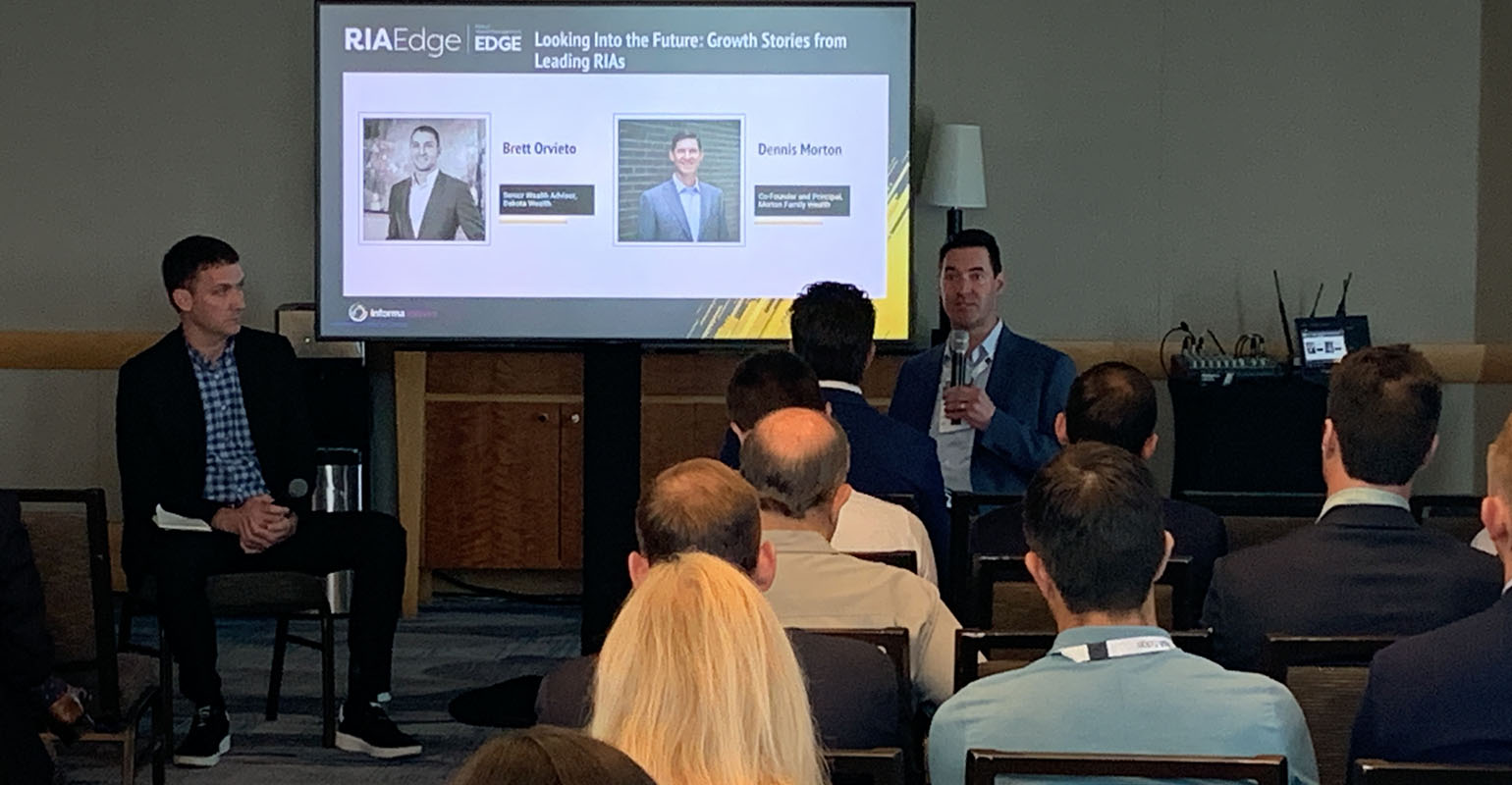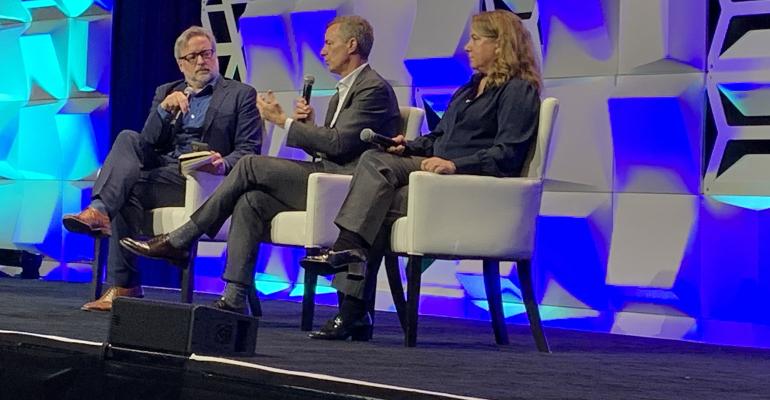Orion CEO: Consolidation Blurring Lines Across “All Business Models”
Consolidation and aggregation across the industry are blurring the lines “in all business models,” according to Natalie Wolfsten.
Wolfsten said that the consolidation pressure RIAs have been under extended to broker/dealers, custodians and RIA aggregators, and it's creating what she deemed “mega-wealth” firms. Perhaps these firms started as B/Ds, but now they have a custodian, RIA affiliations and W-2 employees under one roof.
This expansion means that distinguishing a particular type of advice model is less critical to the behemoths, according to Wolfsten.
“In fact, what these firms are doing is the opposite of that,” she said. “They’re trying to attract great advisors regardless of the affiliation model.”
Specifically, in the RIA space, both Wolfsten and Wealth Enhancement Group CEO Jeff Dekko said advisors were heading for a “bimodal” industry, bifurcated between giant firms that can use technology to create the personalized experience clients increasingly demand and “boutique” local firms serving clients similar enough that the customization comes naturally.
“Any firm can be either of those businesses. Both those businesses can thrive,” Wolfsten said. “But if you want to be the large firm delivering personalized services to clients that have a variety of different backgrounds, goals and life stages, you need to invest in tech to do it. If you don’t, it’ll be difficult to know the clients at the level they expect you to know them.”
How Long Will the “Music” of Deals Keep Playing?
“Do you think the music is going to stop?”
It’s a question about the growth in M&A in the RIA industry, and Ted Motheral, a partner with the Potomac Law Group, has heard a lot of it.
But from his standpoint, he thinks the growth from deals (and private equity’s increasingly voracious interest in the space) will likely continue for another five to seven years.
Mortheral’s firm counsels advisors looking to sell their firms, and he said the biggest driver of the rapid growth in deals is that 60% of the industry in the U.S. will retire in the next 10-15 years.
Not only do those advisors represent the majority of the industry, but Mortheral stressed there was a large gap between advisors aged 55 and 35 in the profession.
“And private equity firms are not stupid,” he said. “They look at that, and they know there’s going to be a modern-day gold rush and cash grab to accumulate and roll up these assets.”
For example, Morenthal said Q1 is typically his firm’s slowest period, but they closed approximately 24 deals by the end of the quarter. His optimistic outlook was predicated on a limited supply of sellers and a “new, sophisticated buyer” in the form of PE firms constantly trying to break into the market.
However, firms should not wait too long to sell, according to Tom Valverde, a vice president of corporate development with Bluespring Partners. He noted that more than 100,000 advisors would likely retire in the next 10 years.
“When they start trying to cash in, the buyers will eventually be outnumbered by the sellers,” he said.
How to Find Organic Growth, Not Just Market Performance

RIAs need to be watchful of their complacency in skating by on market performance as a panacea for organic growth, according to several advisors.
, recalled 20 years ago when he was in the brokerage world, where advisors were trying to move to fee-based platforms for the “wildly successful” recurring revenue.
But that revenue stream has been in place for a long time, with much of the growth coming from the markets. According to Morton, data indicates that most firms are shrinking, absent market growth.
“That’s not good for employees, and that’s not good for culture,” he said.
Brett Orvieto, a senior wealth advisor with Dakota Wealth Management, said many firms approached them with interest in selling their firms but haven’t been able to grow organically for a long time.
Orvieto said it could be difficult for a firm to start doing that, but reminded advisors organic growth doesn’t have to come from a new client. Often, existing clients are doing well, and an advisor can work with more assets from them or their families; that’s also organic growth.
“A lot of times, it’s not all obvious and not all at once,” he said. “Everyone is talking to the guy on the golf course with $20 million ... but not a lot of people are talking to the people I saw, who were 31 or 32, who were about to be very wealthy but weren’t yet.”
Cyber Regulations to Make It More Expensive to Run an RIA
The regulators recognize there are more definitions needed around cybersecurity for wealth managers, and they’re working to get those in place, said Michael Cocanower, founder and CEO of AdviserCyber.
Whatever you’re doing now will be stepped up and more prescriptive. But if you listen to the regulators in examinations and enforcement, they say over and over that anytime a CCO is acting in good faith and executing on policies, rarely do we see an enforcement come out of that. It’s when your policy said something, and you’re not doing that.
Cybersecurity should be culturally integrated into your organization and you have executive-level support for cyber training, he said. “The easiest organization to hack is an individual,” he said.
—Diana Britton
The Next Gen RIA: A Recipe for Turbo-Charging Growth
Arthur Ambarik, CEO of Perigon Wealth Management, on the terms on which RIA can get capital infusions: “There are more investors coming into our industry every single day, so flexibility and optionality is going to get better and better.”
—Elaine Misonzhnik
This live blog will be updated throughout Wealth Management EDGE
